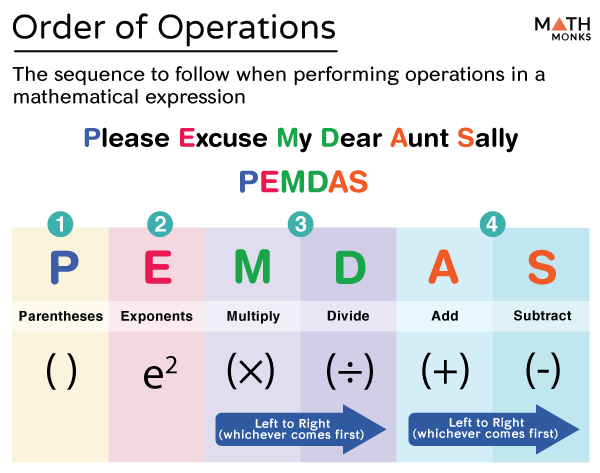

EXPRESSIONS
An expression is a combination of variables and numbers using the operations of addition, subtraction, and multiplication/division without an equal sign. To evaluate an expression means to substitute a number in for the variable and then simplify as much as possible. To simplify an expression means to combine like terms and simplify as much as possible. When simplifying, you must follow the Order of Operations.
EXAMPLE ALGEBRAIC EXPRESSION: 3x + 12
Terms: Elements of an algebraic expression that are separated by a plus (+) sign or a minus (-) sign. In the above example 3x and 12 are both terms.
Constant Terms: Terms that only have one number and no variables. In our example, 12 is the constant.
Variables: Variables are symbols that can represent a variety of numbers. x is the variable in our example.
Coefficients: Numbers that are multiplied by a variable, typically written in front of the variable. In our example, 3 is the coefficient of x.
Factors of a Term: Elements that make up a single term. In our example, 3 and x are factors of the first term.
Like Terms: Terms that have exactly the same variable factor. There are no like terms in the above example. Consider 7x + 4x+19. The 7x and 4x would be considered like terms.




Some links in these guides lead to external websites. While we strive to include accessible and reputable sources, we cannot guarantee the accessibility of external content.